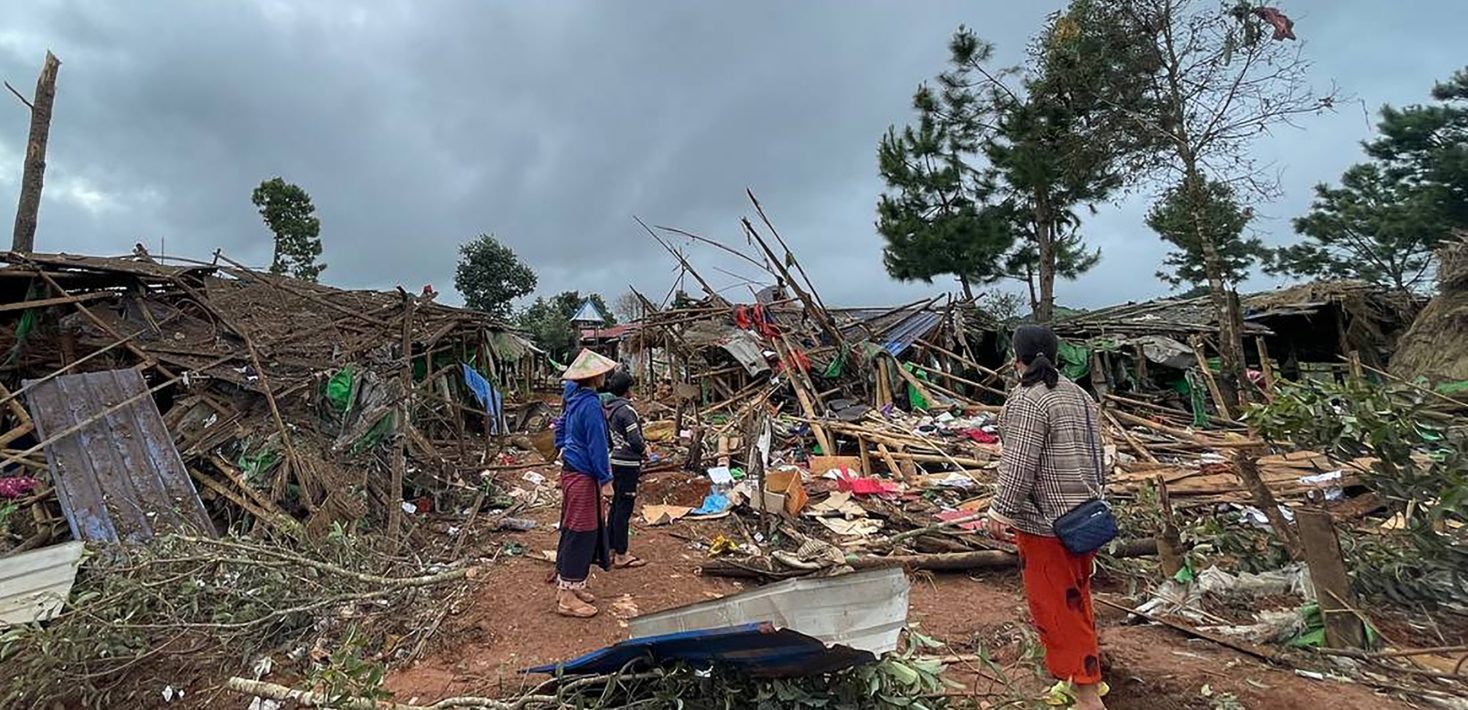Amnesty International Malaysia
Press Release
29 April 2025
The global assault on human rights intensified in 2024, with governments around the world cracking down on freedom of expression and peaceful protest. Malaysia, too, saw a deepening erosion of civic space, Amnesty International Malaysia said today at the launch of its annual State of the World’s Human Rights report.
Around the world, Amnesty International’s report paints a grim picture of deepening authoritarianism and escalating repression. Powerful governments, including permanent members of the United Nations Security Council, continue to undermine the international order—deterring efforts to uphold peace, justice and human rights.
The report, covering 150 countries, spotlights how dissent was increasingly criminalized—through censorship, repression, mass surveillance and violence. In many countries, laws were weaponized to label dissenters—including human rights defenders, journalists, climate activists, and even those protesting Israel’s genocide in Gaza—as “extremists” or “threats to national security.”
Malaysia has been no exception to these disturbing global trends. While the reduction in the number of people on death row marked a long-overdue and important step forward, it was overshadowed by serious regressions elsewhere. In 2024, the government continued to suppress freedom of expression and peaceful assembly, while also backsliding on police accountability, and failing to uphold the rights of asylum-seekers, refugees and migrants.
From Bad to Worse: The State of Freedom of Expression in Malaysia
Speaking at the launch, Amnesty International Malaysia’s Interim Executive Director, Vilasini Vijandran, said that the Madani government’s actions in 2024 have not only failed to reverse long-standing restrictions on free speech but have actively escalated threats to such rights.
Despite electoral promises, the government has yet to repeal draconian laws such as the Sedition Act 1948, Communications and Multimedia Act 1998, and Printing Presses and Publications Act 1984—laws that continue to be used as tools of suppression.
Instead, these acts were weaponized against artists, activists and political critics, who systematically faced harassment, arrest and investigation simply for speaking out. Among them, human rights defender Mukmin Nantang was investigated for sedition after defending the rights of the Bajau Laut community, while artist Fahmi Reza was arrested for his satirical artwork targeting a political figure.
Rather than addressing long-standing civil society concerns, the government bulldozed through amendments to the Communications and Multimedia Act, expanding its powers to control social media content, and introduced arbitrary licensing requirements for social media platforms.
This came alongside the hasty passage of the Online Safety Bill, a measure purportedly to combat cyberbullying, but one which grants alarming new authority to the government over online discourse—with little transparency or oversight.
“Art is not a threat. Advocacy is not a crime. Criticism is not sedition. People in Malaysia must be able to express themselves freely, be it through speech, writing, film, painting, or posting online—without fear of censorship, harassment, or arrest,” said Vilasini Vijandran, the Interim Executive Director of Amnesty International Malaysia.
Peaceful Assembly is Not a Crime
The right to peaceful assembly—guaranteed under Article 10 of the Federal Constitution and protected under international law—continued to be undermined in 2024, as Malaysian authorities used the Peaceful Assembly Act 2012 (PAA) and other punitive laws to criminalize peaceful protests.
The arrest of stateless Bajau Laut students—including children—who peacefully protested for improved water access for students in Sabah, is a new low for the Malaysian government and illustrates how state power is being used to silence those most vulnerable.
“The Malaysian authorities must realize that by doing this, they are not only suppressing protests but also sending a chilling message to young people that their voices are unwelcome,” said Vilasini.
Amnesty International Malaysia notes Prime Minister Anwar Ibrahim’s announcement in February 2025 that the PAA will be amended, beginning with the removal of Section 11—which requires protestors to obtain permission from venue owners. While this is a welcome step, the government has yet to clarify whether broader, meaningful reforms to the PAA will follow.
“We urge the government to engage civil society meaningfully in the amendment process to ensure that all revisions align with international human rights standards. The right to peaceful assembly must be fully protected—not selectively granted. In the meantime, no one should be arrested, investigated, charged, or imprisoned for exercising their constitutional right to protest,” said Vilasini
State Responsibility in Deaths, Detention and Punishment
Malaysia’s treatment of refugees, migrants, and detainees remained one of the most pressing human rights concerns in 2024, marked by indefinite detention, denial of legal safeguards, and systemic abuse in detention centres.
“From arbitrary detention to unchecked abuse, the government’s current approach not only dehumanizes people in search of safety and a better life but entrenches a system of impunity,” said Vilasini.
Custodial deaths and allegations of torture also persisted, with at least 24 deaths reported in police custody from 2022 to mid-2024. Despite government assurances of investigations by the Independent Police Conduct Commission, accountability remained elusive.
Even where progress was made—with the significant reduction in the number of people on death row—the government has yet to follow through with formal next steps towards abolishing the death penalty in its entirety. The courts continued sentencing individuals to death, including for drug-related offences, defying international law and undermining the government’s own claims of progress.
“True reform must address systemic injustice. Until the death penalty is abolished in full, the right to life remains under threat,” said Vilasini.
Restoring the Human Rights Agenda
Amnesty International Malaysia urges the government to put human rights back at the heart of its agenda. This means ending the crackdown on freedom of expression and peaceful assembly, abolishing the death penalty in full, ending the practice of indefinite immigration detention and unlawful deportations, and ensuring independent investigations and accountability for all deaths in custody.
At a time when global standards are under attack, Malaysia must not follow the path of repression—it must lead by example and uphold the dignity, safety, and rights of all within its borders.
For more information or to arrange an interview please contact Amnesty International Malaysia’s Communications Officer, Divya Shesshsan, at [email protected]


